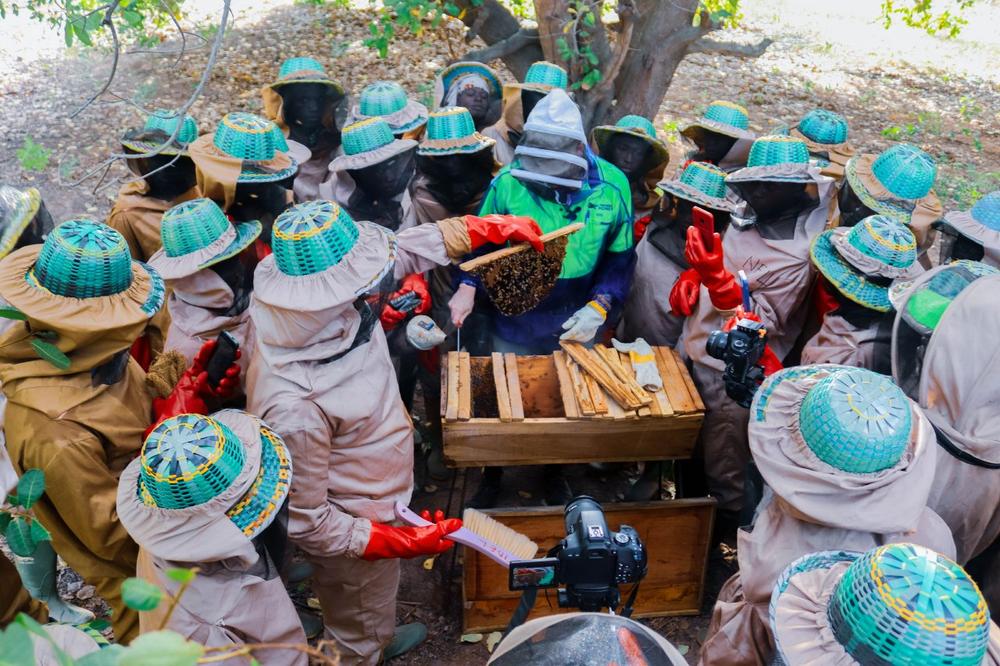Last year, the training of experienced beekeepers took place in different regions of Ghana to further increase the quality of the honey produced there and to create a solid basis of beekeeping knowledge in Ghana. However, more beekeepers are needed to achieve the necessary quantity for export.
Therefore, young beekeepers are being trained this year. For this purpose, the training is taking place in three different regions in Ghana, in the cities of Walewale, Tamale, and Ho. In each region, 100 future beekeepers with little to no experience will learn how to deal with the very aggressive African bees so as not to endanger themselves or others.
Like last year, Kris Fricke, a passionate beekeeper with decades of experience in professional beekeeping and multiple assignments in different countries on the African continent, will train the prospective beekeepers. The training consists of a mixture of theory and practice. In the field, the top-bar hives commonly used in Ghana are put under the microscope, naturally under strict safety precautions. Kris Fricke shows his students what they must pay attention to in their work. For example, the width of the top-bars is crucial.
"If they are too narrow or too wide, the so-called "cross-combing" occurs. Instead of building one comb under each bar, the combs are built diagonally over several bars. This makes regular control of the bee colony and the honey harvest more difficult and can lead to the combs breaking," explains beekeeping instructor Kris Fricke. However, regular inspection is important to see if the colony is in good condition and also to be able to estimate when the honey can be harvested. "To do this, the honeycombs should be as completely capped as possible, otherwise the water content is too high, and fermentation happens very quickly at the tropical temperatures in Ghana, which ruins the very good quality of the honey," describes Arne Dübecke, project manager and himself an amateur beekeeper.
The training is very intensive but well received by the participants. The money earned from the sale of the honey produced is an important source of income for the participating beekeepers and an excellent way to improve their lives. "Apply what you have learned consistently, and you will be able to harvest high-quality honey in sufficient quantities for export next year!" emphasizes Dr. Courage Adanu, our project manager on site in Ghana, to the beekeeper candidates.
Our honey expert and head of the Tentamus Center for Food Fraud (TCF2), Arne Dübecke (arne.duebecke@tentamus.com), will happily answer your questions about the project.
Tentamus Group GmbH was founded in 2011. Tentamus is a global product and safety group with a core presence in Europe, UK, Israel, China, Japan, India and the USA. Accredited and licensed Tentamus Group tests, audits and consults on all products involving the human body (food & feed, pharmaceuticals & medical, agrosciences, cosmetics, agriculture & environment and nutraceutical & supplements). Tentamus Group is represented in over 90 locations worldwide. More than 4,000 highly-trained staff members work in over 3 million square feet of laboratory and office spaces. For further information please visit www.tentamus.com.
Tentamus Group GmbH
An der Industriebahn 26
13088 Berlin
Telefon: +49 (30) 206038-230
Telefax: +49 (30) 206038-190
http://www.tentamus.com
Managing Director of Chelab GmbH and of TCF²
E-Mail: arne.duebecke@tentamus.com
![]()
